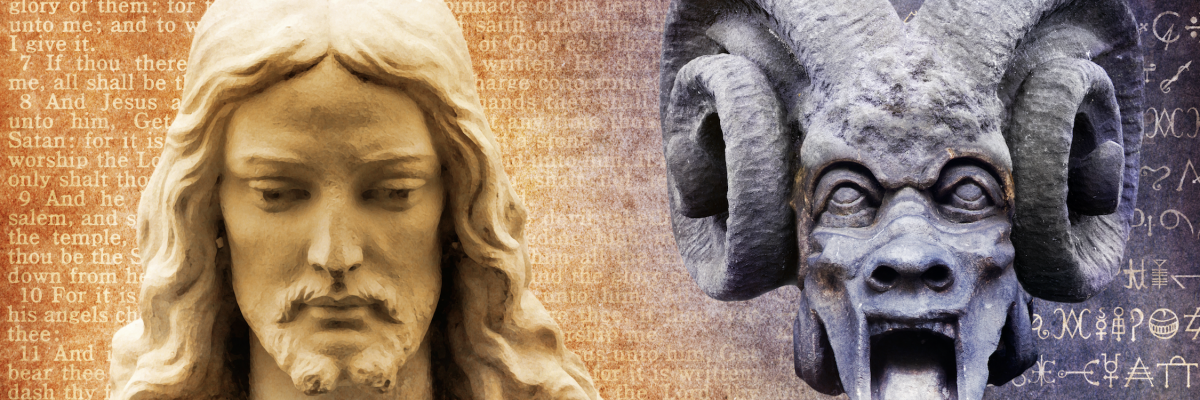
Imagine that you finally get to meet your new neighbors. And at the get-to-know-each-other barbecue you discover that the husband, Joe, is a fallen-away Catholic and is now a staunch Protestant.
As you’re having a few cold ones near the grill, Joe begins to share his love for the Bible and how he’s learning at his church’s bible study that the Bible is the only infallible source for determining the truth of God’s revelation. “That Tradition stuff that I was taught by the nuns,” Joe says, “has no bearing on our knowledge of God’s truth.”
Because you read the Catholic Answers’ tract Scripture and Tradition the night before, you say, “Well, you know, Joe, that’s an interesting belief, but have you ever considered St. Paul’s teaching in 2 Thessalonians 2:15?”
Joe hasn’t. So you quote it to him: “So then, brethren, stand firm and hold to the traditions which you were taught by us, either by word of mouth or by letter.”
“You see, Joe,” you say, “there is something more than the Bible that we must appeal to in order to determine the truth of God’s revelation—namely, the apostolic preaching, or Sacred Tradition. Those nuns were right all along.”
The contextual deception of the Antichrist
I’ve used this verse time and time again when dialoguing with Protestants. But one thing I never noticed about this passage until about a year ago is the context. Notice St. Paul writes, “So then, brethren stand firm and hold to the traditions. . . .” (emphasis added). This indicates that his command follows from the preceding verses. So what does Paul say in those verses?
His whole message is centered on the Antichrist, whom he calls “the man of lawlessness” and “the son of perdition.” Paul informs the Thessalonians that this individual will “oppose and exalt himself against every so-called god or object of worship, so that he takes his seat in the temple of God, proclaiming himself to be God.”
He then goes on to explain that the lawless one will work “pretended signs and wonders” by “the activity of Satan” and that such activity will cause “deception” and “a strong delusion, to make them believe what is false” (9-11). Paul then explains how such erroneous belief will lead to “pleasure in unrighteousness” and thus “condemnation” (12).
The Catechism of the Catholic Church affirms this teaching:
Before Christ’s second coming the Church must pass through a final trial that will shake the faith of many believers. The persecution that accompanies her pilgrimage on earth will unveil the “mystery of iniquity” in the form of a religious deception offering men an apparent solution to their problems at the price of apostasy from the truth. The supreme religious deception is that of the Antichrist, a pseudo-messianism by which man glorifies himself in place of God and of his Messiah come in the flesh (675).
How to not be deceived
Upon hearing about such a deception, questions naturally arise: “Will my faith be shaken? Will I be numbered among the deceived? How do I ensure that I won’t be deceived?”
According to St. Paul, the way we protect ourselves from the deception is “by holding fast to the traditions.” The truth of Jesus’ gospel is in Sacred Tradition, whether it’s found in the written or oral form. Therefore, Sacred Tradition is the criterion for discerning truth from error.
This is similar to St. John’s teaching:
We are of God. Whoever knows God listens to us, and he who is not of God does not listen to us. By this we know the spirit of truth and the spirit of error (1 John 4:6).
Similar to 2 Thessalonians 2:15, it is the presence of false teaching (see 1 John 4:1) and the spirit of the antichrist (see 1 John 4:3) that prompts John to make this statement. So to the question, “How do I ensure that I am not deceived by the Antichrist?” John is saying, “Listen to us!” In other words, we must adhere to the apostolic preaching, or Sacred Tradition, to ensure that we remain in the truth.
This is well and good, but how do we identify this Sacred Tradition today?
According to Dei Verbum, through Tradition “the Church, in her doctrine, life, and worship perpetuates and transmits to every generation all that she herself is, all that she believes” (8).
So in order to identify Sacred Tradition today, we must look to the Church’s creeds and infallible doctrines, the moral practice of the Church, and the sacred liturgy. It is this “living Tradition” (CCC 83) that provides Christians the full and clear picture of God’s revelation.
The warning remains
Now, for anyone who may think that the warning of deception is not relevant today, since we probably won’t be alive at the time when the Antichrist comes, the Catechism makes it clear that we need to be on guard:
The Antichrist’s deception already begins to take shape in the world every time the claim is made to realize within history that messianic hope which can only be realized beyond history through the eschatalogical judgment. The Church has rejected even modified forms of this falsification of the kingdom to come under the name of millenarianism, especially the “intrinsically perverse” political form of a secular messianism (676).
This is not dissimilar to St. John, who recognized in the passage above that Christians must be on guard against the spirit of the antichrist (1 John 4:6).
Since the spirit of the Antichrist and his deception is always with us, it follows that Paul’s command to hold to the traditions embedded in their teaching is as relevant for us today as it will be for those who have to face the Antichrist at the end of time.
Apart from the time of the new heaven and new earth when error is no longer mingled with truth (Rev. 21:1-4), Christians will always be subject to deceit and thus will always need to discern truth from error. As it was for Paul, John, and all the early Christians, the Sacred Tradition, along with Scripture, is our infallible criterion for such discernment.
So to Joe you can say, “If you don’t want to be deceived by Satan and sifted like wheat, then you need to hold fast to both Scripture and Sacred Tradition. And, speaking of wheat, let’s eat!”



